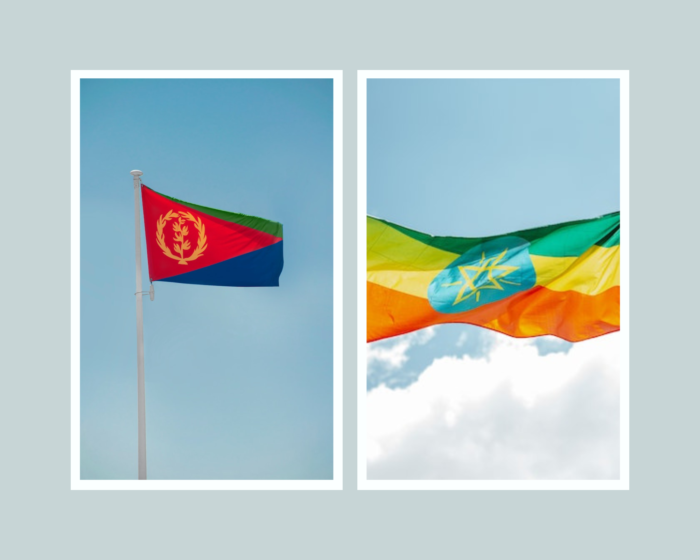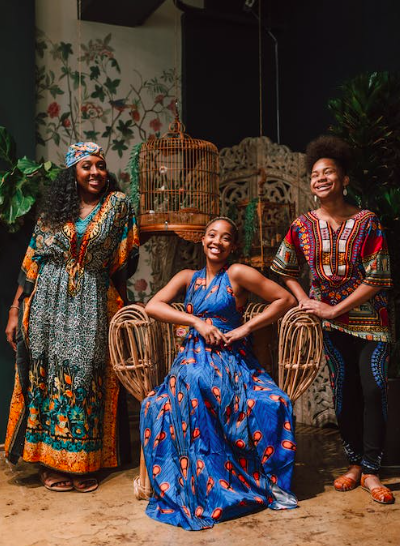
Have you ever wondered what your city or region is doing on the world stage?
You might be surprised to learn that many local governments are not just sitting back and letting their national governments handle international affairs. They are actively engaging in what is called paradiplomacy: the involvement of non-central governments in international relations. In recent years, there has been a growing trend of subnational governments in Africa engaging in paradiplomacy, or the involvement of non-central governments in international relations. This trend is being driven by several factors, including the increasing economic and political power of subnational governments, the growing diaspora of African people around the world, and the need for African countries to find new and innovative ways to promote development.
Paradiplomacy is not a new phenomenon. It has been around for centuries when cities and regions established diplomatic contacts with other polities. However, it has gained new momentum in the 21st century, as globalization, decentralization, regionalization, and democratization have increased the opportunities and incentives for local governments to pursue their interests, cooperate with partners, and participate in global governance.
Paradiplomacy involving diaspora communities.
There are several ways in which subnational governments in Africa are engaging in paradiplomacy. One way is through partnerships and agreements with subnational governments and organizations in the African diaspora. These partnerships can help to promote trade, investment, tourism, cultural exchange, and social development. For example, the Western Cape Province of South Africa has established partnerships with New York State, the Flanders Region in Belgium, and the African Diaspora Forum in South Africa. These partnerships have helped to promote trade and investment between the Western Cape and these other regions and have also helped to foster cultural exchange and social development.
In addition, subnational governments in Africa are engaging in paradiplomacy, through the hosting of events and initiatives to celebrate the African heritage and culture of their populations. For example, the City of São Paulo in Brazil has developed a strong paradiplomatic agenda with the Angolan community in Brazil. The city has hosted various events and initiatives to celebrate the African heritage and culture of its population, such as Black Consciousness Month and the African Week. These events and initiatives help to promote African culture and identity and help to build bridges between the African diaspora and the host country.
The engagement of subnational governments in Africa in paradiplomacy is a new and innovative phenomenon. It is a trend that is likely to continue to grow in the years to come. As subnational governments in Africa become more active in international relations, they will find new and innovative ways to engage with the African diaspora. These efforts will help to promote development, enhance identity, and culture, and democratize foreign policy, all of which are essential for the future of the African continent.
Paradiplomacy by Diaspora communities.
Similarly, local governments can engage in paradiplomacy with the diaspora by allowing them to engage in their own paradiplomatic activities independently or collectively. This can include advocating for human rights, promoting economic development in their countries of origin, or facilitating cross-border cooperation between subnational governments and civil society organizations. By engaging in paradiplomatic activities, diaspora communities can influence host countries’ foreign policies towards their home countries and contribute to global governance and peacebuilding.
For example, the Nigerian Community in Atlanta, which has been actively involved in paradiplomatic activities with Nigeria and other African countries. The community has established a sister city relationship with the City of Lagos in Nigeria and has supported various projects and programs to foster economic, educational, and cultural ties between the two cities, such as the Atlanta-Lagos Trade Mission and the Atlanta-Nigeria Education Initiative.
Paradiplomacy influenced by Diaspora groups.
A third way that local governments can engage in paradiplomacy with the diaspora is by being influenced by the presence and interests of diaspora groups in host countries or regions. This can include supporting or opposing host countries’ policies or actions towards their home countries or regions. The influence of diaspora groups can help local governments to align or diverge from their central governments’ positions on international issues affecting their home countries or regions.
For example, Catalonia’s paradiplomatic activities with Middle Eastern states. Catalonia has been influenced by its large Moroccan diaspora community to develop closer ties with Morocco and other Arab countries. Catalonia has also supported Morocco’s position on Western Sahara’s independence issue against Spain’s official stance.
Benefits of Paradiplomacy for African development:
- Promoting development: Paradiplomacy can help to promote development by fostering cooperation, innovation, knowledge transfer, and international aid among subnational governments and their diaspora partners. For example, the Western Cape Province of South Africa has partnered with New York State to promote trade and investment between the two regions. This partnership has helped to create jobs and boost the economies of both regions.
- Enhancing identity and culture: Paradiplomacy can help to enhance identity and culture by strengthening the ties between the African homeland and its diaspora. For example, the City of São Paulo in Brazil has hosted various events and initiatives to celebrate the African heritage and culture of its population. These events and initiatives help to promote African culture and identity and help to build bridges between the African diaspora and the host country.
- Democratizing foreign policy: Paradiplomacy can help to democratize foreign policy by allowing subnational governments to participate in global governance and to represent their own interests and perspectives on international issues. For example, the City of Atlanta in the United States has been actively involved in paradiplomacy with the Nigerian community in Atlanta. The city has established a sister city relationship with the City of Lagos in Nigeria and has supported various projects and programs to foster economic, educational, and cultural ties between the two cities. This effort helps to give the Nigerian community in Atlanta a voice in the city’s foreign policy.
Challenges and Limitations of Paradiplomacy with the African Diaspora:
- The need to coordinate with national governments over the legitimacy and scope of subnational foreign policies, as well as avoid conflicts or contradictions with national interests and positions.
- Overcoming legal and political obstacles from the central governments or the host countries that may restrict or regulate the international activities of subnational governments.
- Developing organizational structures and resources that may enable subnational governments to engage effectively and efficiently in paradiplomacy with the African diaspora.
- Dealing with complex and sensitive issues such as human rights, security, or sovereignty that may require careful management and communication with various stakeholders.
Despite these challenges, paradiplomacy with the African diaspora is an increasingly important phenomenon. As subnational governments in Africa and elsewhere become more active in international relations, they are finding new and innovative ways to engage with the African diaspora. These efforts are helping to promote development, enhance identity and culture, and democratize foreign policy, all of which are essential for the future of the African continent and its diaspora.
Conclusion.
Paradiplomacy with the diaspora is an important topic for international relations theory and practice. It challenges the traditional notion that states are the only or main actors in international relations and that foreign policy is a monopoly of central governments. It also contributes to diversifying the approaches and perspectives in international relations theory by incorporating subnational actors into the analysis. It also raises new questions about global governance and international order, such as how to balance national sovereignty and subnational autonomy, how to coordinate multilevel diplomacy, and how to manage transnational networks.
By: Eric Muhia
Author Image Attribution: Eric Muhia
Find out how our CONSULTANCY can help you with your Content Writing, Digital Marketing and PR requirements HERE.
Check out the latest diaspora, migration and diplomatic related Jobs HERE.
Submit your Press Release / Related Contributions HERE.
RELATED NEWS AND STORIES




